Donor Spotlight Template
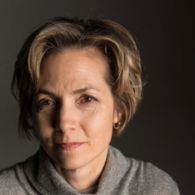
Vicki’s Glioblastoma Story
September 2019
When Vicki was diagnosed with glioblastoma multiforme (GBM) nearly nine-years ago, very little research existed on this aggressive cancer of the brain. Doctors gave her 12-14 months to live, which is common for patients with GBM. Since being diagnosed, Vicki’s read up on all available GBM information that she can get her hands on and spoken with as many people as possible. It’s how she came to find out that no further research would be conducted in New Zealand.
That’s why in 2016, she was overjoyed to see that a research team thousands of miles away was making breakthroughs at the JGH’s Lady Davis Institute (LDI). A research team led by Dr. Arezu Jahani-Asl made a world-renowned discovery by identifying a protein responsible for the growth of brain tumours. It found that the tumors, known as glioblastomas, can only form if a particular protein is present.
For terminally-ill people like Vicki, research is much for than scientific knowledge. It provides hope to patients and their families.
“I cried for hours, knowing that someone cared. Someone did believe. Someone saw me as more than a statistic. Thank you, Dr. Jahani-Asl, for not giving up on us. Thank you for giving us hope.”
Despite the initial prognosis, she’s very much alive today. Vicki herself is a figure of hope, defying the odds and creating a support group for terminally-ill people. Her plan this year? To to continue being awesome!
Dr. Jahani-Asl is now developing antibodies and small molecules to inhibit the OSMR protein or its interaction with EGFRvIII—a step toward the ultimate goal of finding ways to treat these tumors
Like Vicki, the JGH Foundation is grateful for donors, who make breakthroughs possible. Donors like you play an essential role in the progress of research. You help create resources, facilitate access to equipment, and give access to more screenings. You, too, are a source of hope for patients!
AFFICHER PLUS
Amy’s Story
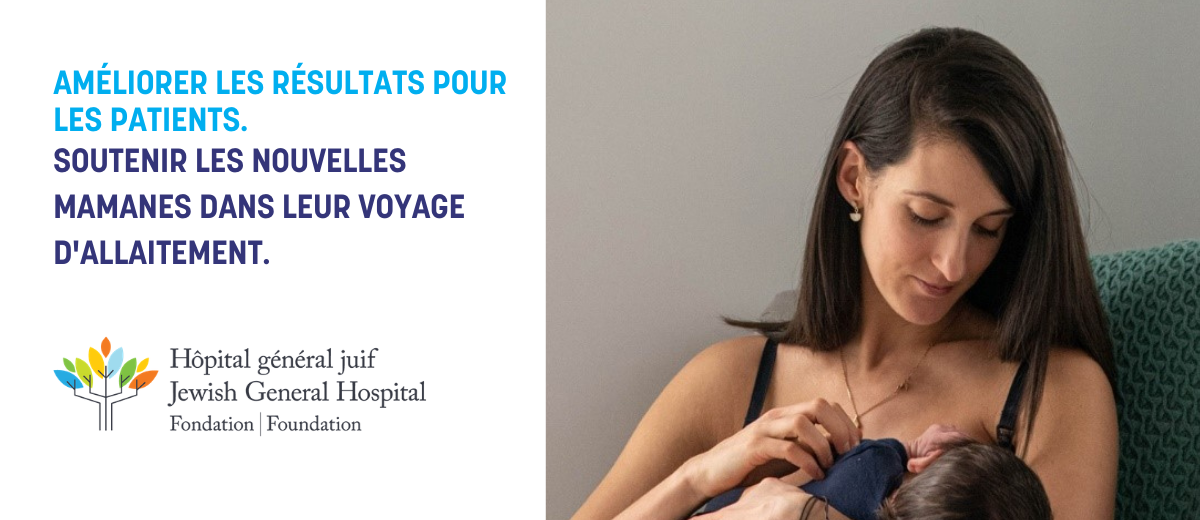
HERE'S AMY'S STORY
"From the day I got pregnant, I knew I wanted to breastfeed my son. I'd read the books, taken the classes, and understood just how beneficial it was. I saw it as the most natural, beautiful, and womanly aspect of motherhood.
« Je faisais un suivi méticuleux de chaque période d'allaitement, de chaque changement de couche, et je donnais le sein à mon fils au moindre signe de faim », a mentionné Amy.
Un soir, Amy a commencé à avoir très mal pendant l'allaitement. Chaque fois que son bébé prenait le sein, elle ressentait une sensation de brûlure intense.
Then, suddenly, one night, it began. Every time my baby would latch on, I would experience searing pain. I would sit there trying to apply the breathing techniques I'd learned for labour to get through each session until it got too intense and I would have to pull him off. Between the guilt and the sleep deprivation, I admit that my conviction and confidence wavered.
« Neuf mois de grossesse et un très long et douloureux accouchement m'ont démontré à quel point je peux être forte. Avec l'aide de la clinique d'allaitement, j'ai réussi à passer à travers cette période difficile et la douleur a fini par diminuer. »
Les experts de la Clinique d'allaitement Herzl-Goldfarb offrent aux familles qui allaitent des services de lactation axés sur l'excellence des soins et les recherches actuelles, forment les professionnels à la gestion de l'allaitement et contribuent à la recherche dans ce domaine.
« Mon bébé est maintenant âgé de sept mois et je suis tellement reconnaissante envers l'aide que j'ai reçue de la clinique », a ajouté Amy. « Les consultants en lactation m'ont guidé et m'ont rassuré dans cette démarche et m'ont enseigné des techniques pour que je puisse continuer d'allaiter mon garçon. »
La Clinique d'allaitement Herzl-Goldfarb est un centre de référence interdisciplinaire pour les mères et les bébés qui éprouvent des difficultés avec l'allaitement. Elle est financée en grande partie par les donateurs de la Fondation de l'HGJ.
Merci! Grâce à votre soutien et aux professionnels de la santé dévoués de la Clinique d'allaitement Herzl-Goldfarb de l'HGJ, les mères et leurs enfants qui vivent des problèmes d'allaitement peuvent obtenir de l'aide pendant cette étape importante de la maternité.
Vous aimeriez contribuer à améliorer le soutien offert aux patientes de la Clinique d'allaitement Herzl-Goldfarb? Soutenez la mission de l'HGJ en faisant un don en ligne sur notre site sécurisé.
AFFICHER PLUS
L’histoire d'André Charron
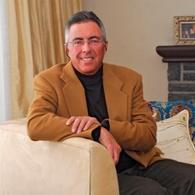
Although it has been almost a decade since Andre Charron's father lost his life to Alzheimer's disease, thinking back on everything he saw him go through still breaks his heart.
"No one is prepared to see their parents slowly forget who they are. Or the challenges, both emotional and financial, that come with caring for a loved one with Alzheimer's," said Andre.
September is the month for remembering those faced with an illness we often forget. World Alzheimer's Month is a reminder to us all that Dementia knows no social, economic or geographical boundaries. In fact, every 3 seconds someone in the world develops it.
"Like millions of others who have had Alzheimer's in their family, I wonder about the genetic links of this disease," added Andre. "Am I more susceptible? Can I do anything to prevent it?"
Chaque année, près de 1 000 patients reçoivent des traitements, du soutien et des conseils à l'HGJ.
"After my dad was diagnosed, he was followed at The Anna & Louis Goldfarb JGH/McGill Memory Clinic. I saw firsthand the unparalleled expertise in diagnosing, treating and caring for patients with memory disorders and dementia."
A recognized leader in its field in Canada, the Clinic is led by some of the best researchers and doctors in the world. There, experts like Dr. Ruby Friedman Site Director of the Division of Geriatric Medicine, estimates that 160,000 Quebecers will have Alzheimer's by the year 2030.
"I'm sure that this is the disease 99% of the population is most afraid of. That's why accelerating research is more important today than ever before," said Dr. Friedman. "But, the JGH is ready for the challenge."
"For the last twenty-five years, the JGH has had the infrastructure and foresight to develop research protocols which enable more efficient diagnosis and ensure proper symptom management efforts are undertaken."
Share this story today! Help raise awareness for #WorldAlzMonth
AFFICHER PLUS
Lundbeck Canada Inc.
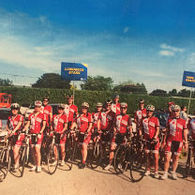
Résolument engagée à donner de l'espoir aux patients atteints du cancer
Le Cyclo-défi Enbride contre le cancer, qui en est à sa 8e year as Quebec's largest cycling fundraiser, showcases the tremendous value and power of the enduring partnerships that the JGH Foundation enjoys with deeply committed corporate citizens such as Lundbeck Canada. Lundbeck Canada is a subsidiary of H. Lundbeck A/S, an international research-based pharmaceutical company focused on brain diseases and oncology that is celebrating its 100e year of existence. Based in Montreal, Lundbeck Canada has been active in the Canadian pharmaceutical industry for two decades now, marketing products for the treatment of depression, anxiety, Alzheimer's disease, schizophrenia, bipolar disorders, chronic lymphocytic leukemia, non-Hodgkin lymphoma, and acute promyelocytic leukemia.
Lundbeck Canada has participated in the Enbridge Ride to Conquer Cancer for the past five years, and was also a sponsor of the JGH Foundation's 1st événement-bénéfice annuel de conditionnement physique Corps et Âme de la Fondation de l'HGJ (au profit des services de santé mentale pour les jeunes) l'an dernier. Cette année, l'entreprise a décidé d'intensifier son engagement en soutien des programmes de recherche, de prévention, de diagnostic et de traitement oncologiques à l'Hôpital général juif ainsi qu'à d'autres centres de cancérologie à travers la province en formant un équipe de 10 cyclistes et en accordant sa plus importante contribution financière au Cyclo-défi à ce jour.
"The main reason why we got involved in the Ride to Conquer Cancer is to help give hope to cancer patients and their loved ones, and let them know they are not alone in this fight," emphasizes Marcel Chenard, Head of Oncology Business Unit at Lundbeck Canada. "We take things for granted in life and we all know people who have been affected by this terrible disease. Riding over 200 kilometres over 2 days and raising money for this great cause is nothing compared to what people have to go through when they are diagnosed with cancer."
"By partnering with an innovative centre such as the Segal Cancer Centre, which is ahead of the game and the best in their class, we felt we could make the biggest impact," adds Mr. Chenard. "Our employees are committed to supporting this important initiative and we intend to keep riding for cancer in an effort to challenge the status quo, because Quebecers and Canadians living with cancer deserve better."
"Lundbeck Canada is a valued partner in the fight against cancer, and is setting an example for all corporations through their determination to make a difference by raising funds for research that will lead to better treatments and outcomes for patients," concurs JGH Foundation President and CEO, Myer Bick. "We are committed to providing opportunities like the Ride to Conquer Cancer for local and national corporations to play an important role in ensuring the continued health and well-being of our community."
AFFICHER PLUS
OFFRIR UNE NOUVELLE CHANCE AUX GENS ATTEINTS DU CANCER.

À seulement 38 ans, j'ai reçu un diagnostic de cancer du sein et j'ai commencé un traitement à l'Hôpital général juif. Cette même année, mon père venait de perdre sa bataille contre le cancer, j'étais donc pour le moins bouleversée quand j'ai appris la nouvelle.
Mais, heureusement, j'avais espoir !
Grâce à la recherche, une nouvelle technique connue maintenant sous le nom de biopsie des ganglions sentinelles a permis à mes médecins de détecter le type de cellules cancéreuses de mes ganglions lymphatiques. L'équipe de l'HGJ a pu alors localiser les ganglions lymphatiques problématiques et les extraire.
Mon traitement initial a réussi mais en 2006 le cancer est revenu.
Entre mon premier et mon deuxième diagnostic, une mutation génétique nommée HER2 -une protéine favorisant la croissance des cellules sur les tissus mammaires - a été découverte. Un HER2-positif ayant été diagnostiqué chez moi, j'ai reçu un plan de traitement spécifique.
What most people don't know is that there are various types of breast cancers and may require a specific treatment plan. It isn't one-size-fits-all. Research saves lives like mine.
If I didn't know I was HER2-positive I probably wouldn't be here today.
Le Dr Mark Basik, chercheur à l'Institut Lady Davis et professeur adjoint au département de chirurgie et d'oncologie à l'Université McGill, travaille actuellement à des recherches qui pourraient sauver des vies. Le Dr Basik et son équipe travaillent à la fois à la recherche fondamentale et à la recherche clinique. De plus, leur recherche translationnelle sur le cancer se concentre spécifiquement sur la résistance aux médicaments.
Supporting research like Dr. Basik's is vital. I am proof that the JGH makes wonders happen and I am determined to do my part to spread the word. Together, we can make this happen. Will you join me? Give to Dr. Basik's research today and give all types of cancer patients a new lease on life.
Donnez ici
AFFICHER PLUS
L'histoire de Pablo
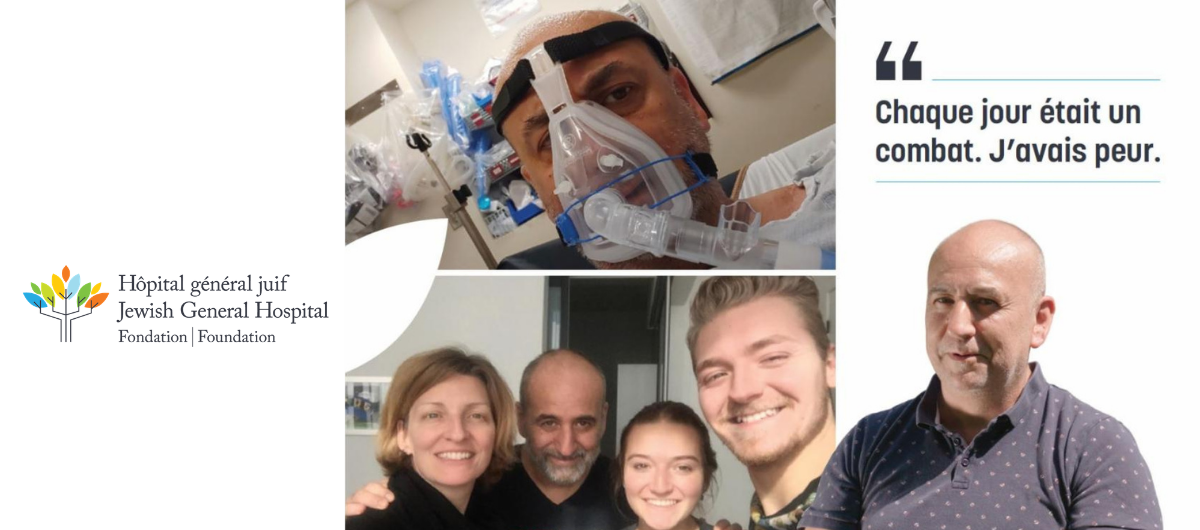
En revenant à la maison après avoir séjourné à l'HGJ pendant 21 jours, le monde n'était plus le même. Je parle bien sûr de ma surprise de voir les rues vides, mais aussi de ma nouvelle vision de la vie. Vision modifiée certes par la souffrance, l'inconnu, ma proximité à la mort, mais surtout par vos gestes.
My post-COVID has shattered great paradigms for me: on the definition of intensive care (9th floor) and post-intensive care recovery (6th and 5th?). I thought these two units were focused on aspects related to the recovery of the patient's physical and mental health. But in my case, these two units were an inspiration that took hold in my mind fueling the desire to fight – thanks to the incredibly empathetic front-liners always there with a smile. Generous nurses who manage to calm you down when you most need it. When there are tears, they are there to cheer you up, every second, every day. And then there were the doctors who fought hard to combat the virus while demonstrating a rarely seen humanism. This instills an incredible trust from the patient because they tell you the hard truth, but at the same time extend their hand to you like a coach who makes you want to follow, to fight for him or her.
Grâce aux infirmières d'une grande générosité qui réussissent à nous calmer quand on en a le plus besoin. Quand on pleure par exemple, elles sont là pour nous remonter le moral, à chaque seconde, à chaque jour…à un point tel qu'on a peur qu'elles changent de quart de travail…mais le lendemain, c'est une nouvelle infirmière qui me fait sentir aussi bien. Et grâce aux médecins qui luttent fort pour vaincre la maladie tout en démontrant un humanisme rarement vu. Ce type d'approche arrive à insuffler au patient une totale confiance, car ils te disent la dure vérité, mais ils te tendent la main en même temps, tel un coach qui te donne envie de le suivre, de te battre pour elle ou lui.
D'autre part, ma vision du système de santé au Québec a aussi été chamboulée. J'étais très critique envers celui-ci, mais le système a fonctionné avec brio pour moi, en pleine tempête. Je voudrais pouvoir écrire le nom de tous les gens qui ont été complices de ma survie (aux soins intensifs et à la récupération au 5ème étage +++), mais ma mémoire m'a joué des tours pendant ces jours de convalescence. Alors si vous voyez ma photo et que vous me reconnaissez, sachez que je vous suis à jamais redevable de pouvoir embrasser mes enfants et mon épouse tous les jours. Je vous garderai dans mon cœur pour toujours et je me remémore vos visages le soir comme une façon de vous dire merci en silence.
Merci du fond du cœur.
Pablo Gray - COVID-19 patient number 7
AFFICHER PLUS
Ouverture du CETAC nouvellement agrandi
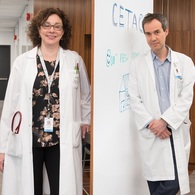
L'Hôpital général juif célèbre l'ouverture de son Centre d'excellence en thrombose et anticoagulation nouvellement agrandi, une réalisation rendue possible grâce à l'appui exceptionnel de Sanofi Canada
Le Centre fournira ce qu'il y a de meilleur concernant les soins, la recherche et la formation afin de prévenir les caillots sanguins et d'assurer la sécurité en matière d'anticoagulation
Montreal, Quebec - May 9, 2018 –The Jewish General Hospital today announced the opening of its newly expanded Centre of Excellence in Thrombosis and Anticoagulation Care (CETAC). This new Centre is setting the stage for enhanced awareness, prevention, research, training, diagnosis and treatment of thrombosis and its associated complications, not only at the JGH but across the Quebec health care system.
The Centre's mandate is to provide leadership and guidance to other institutions and agencies in Quebec to support initiatives in thrombosis prevention and treatment. Funding of the Centre was made possible through the JGH Foundation and from Sanofi Canada.
“Thanks to our fruitful partnership with Sanofi Canada and the generous support from the community the newly expanded Centre of Excellence in Thrombosis and Anticoagulation Care will play a vital role in lessening thrombosis-related mortality, morbidity and socioeconomic burden not only at the JGH but throughout the Quebec healthcare system," said Dr. Susan Kahn, Director of CETAC.
L'implantation du CETAC dans une installation spécialisée et plus vaste permettra de rationaliser la prestation des soins, d'améliorer l'acheminement du travail et de renforcer la collaboration dans le domaine de la recherche. Nos efforts concertés, axés sur les soins cliniques, la formation et la recherche en matière de sécurité liée à l'anticoagulation, amélioreront l'état de santé de nombreux patients à l'HGJ, tenus de prendre des anticoagulants. Situé au troisième étage du pavillon B, le nouveau CETAC regroupe, grâce à son expansion, toutes les activités de formation et de recherche ainsi que les activités cliniques dans un seul site spécialisé.
“Sanofi is proud to support the Centre of Excellence in Thrombosis and Anticoagulation Care (CETAC) at the Jewish General Hospital as part of our commitment to investing in initiatives that empower the lives of Canadians. It is an important priority for Sanofi to contribute to patient education and our goal is to help patients and their families when it matters the most," said Paul-François Cossa, General Manager of General Medicines and Established Products, Sanofi Canada.
Prévention et sensibilisation : la clé pour sauver des vies
“Venous thromboembolism (VTE) is the third most common cardiovascular condition after heart attack and stroke, with one in four Canadians who die from causes related to blot clots," says Dr. Susan Kahn, Director of CETAC. “In addition, VTE causes more deaths each year than breast cancer, HIV and motor vehicle accidents combined. These complications are serious health issues, which must be addressed in an organized fashion in a state-of-the-art facility, where we can work towards prevention, patient awareness and in turn, saving lives."
“Without a dedicated facility, nor the funding, patients were spilling in the corridors due to the insufficient number of exam rooms and waiting areas," recalls Dr. Blostein, Associate Chief of the JGH Division of Hematology and Oncology, and Senior Investigator at the Lady Davis Institute (LDI). “We didn't have the room to hire an anticoagulant pharmacist, nor to train physicians (fellows) and graduate students. Our clinical team, our researchers and even our services were scattered throughout the hospital. Now all of that has changed thanks to this newly expanded Centre."
Parmi les premiers au Canada à développer un protocole de prévention de la TEV
The JGH was among the first in Canada to develop a hospital-wide protocol to determine which patients are at risk for VTE and which preventive methods should be applied. Since 1998, the JGH has built a unique, multidisciplinary Thrombosis Program with patient care, training, education and internationally recognized research components that are unparalleled in Quebec and among the top three programs in Canada. “We have been trailblazers in developing VTE prevention protocols and anticoagulation guidelines at the national and international level," confirms Dr. Kahn, Founder and Director of the CETAC.
“We are now in a position to expand our clinical activities and increase our recruitment of patients in thrombosis studies," declares Dr. Kahn. “The added space will also allow us to measure outcomes via patient satisfaction surveys and other means. These are critical to assess which pharmacologic and non-pharmacologic measures actually diminish the risk of Deep Vein Thrombosis (DVT) and Pulmonary Embolism (PE), and to the continuous improvement of our interventions."
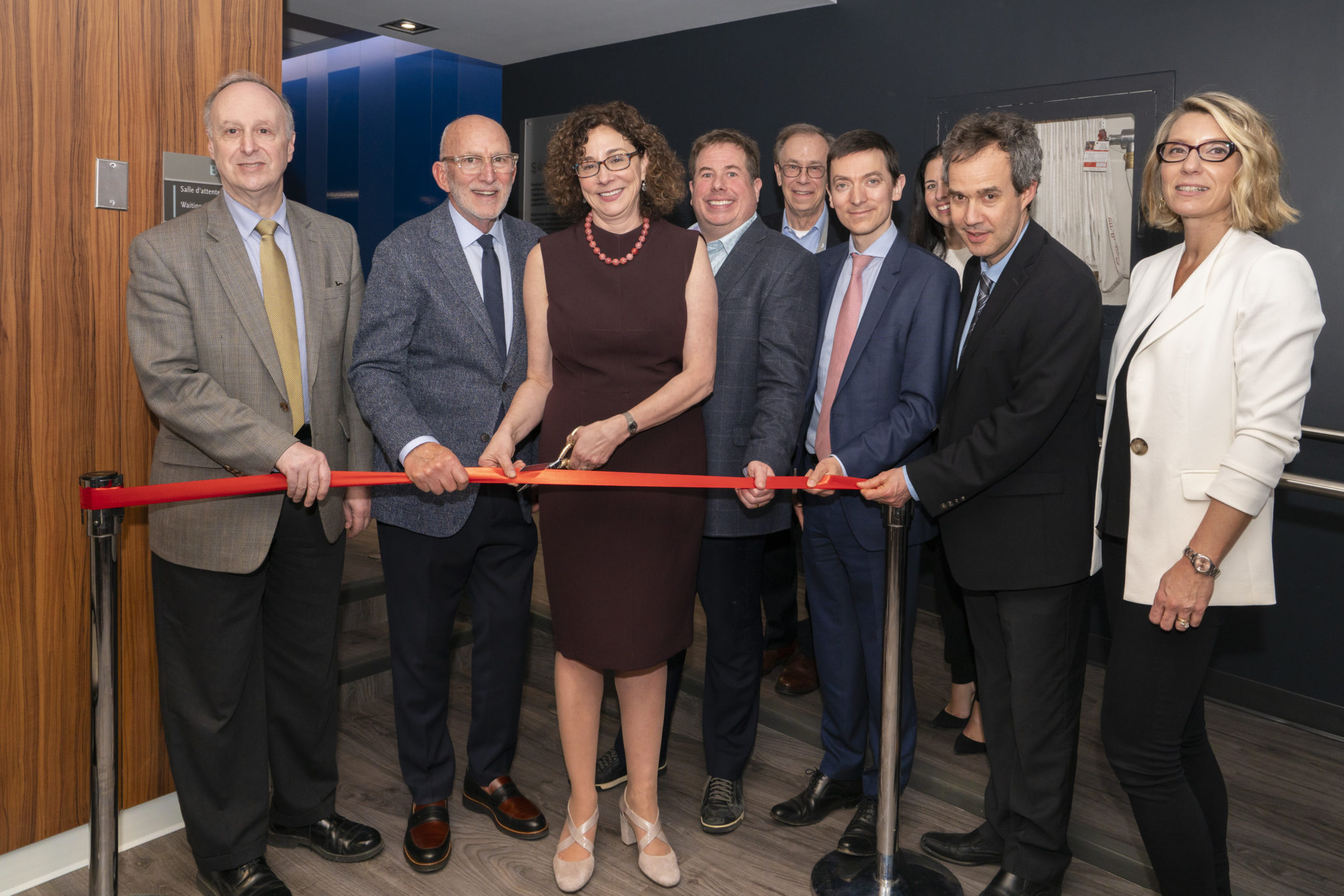
AFFICHER PLUS
André B. Charron

Perpétuer le souvenir d'un père bienveillant et aimant
André B. Charron, a vice-president and portfolio manager who lost his father to Alzheimer's disease (AD) in 2011, has made it his mission to help support research aimed at finding the cause of this disease in any way he can. “How can we expect to cure Alzheimer's or even treat it adequately as long as we don't know what causes it in the first place?" says André. “I find it unacceptable that in this day and age we still know almost nothing about this horrendous disease"
His father's first symptoms appeared sometime in 2002-2003, but he wasn't diagnosed with AD until 2008. As his condition gradually worsened, the family found it harder and harder to take proper care of him at home and had to make the heart wrenching decision to place him in a specialized centre in 2009. His stay there was punctuated by many falls and mishaps which required frequent nightly visits to the ER at various hospitals. It is during one such emergency that André came to discover and appreciate the quality of care provided at the JGH and by its compassionate staff, and it is at the JGH that his father ultimately lived the final month of his life.
When the opportunity presented itself to help out the JGH and get involved in the fight against Alzheimer's disease, André did not hesitate. “I was keen on supporting a research and support program that is well-established and recognized internationally for its excellence," says André. “I was won over by the innovative work done at the Anna & Louis Goldfarb JGH/McGill Memory Clinic and by the quality and scope of the research on Alzheimer's disease carried out by Dr. Howard Chertkow and his team (and in particular, Dr Andrea LeBlanc) at the Bloomfield Centre for Research on Aging of the Lady Davis Institute."
The Charron family also made a generous gift to the Marjorie & Gerald Bronfman Division of Palliative Care, in gratitude for having taken such good care of their beloved father in his final days. Furthermore, André has now taken a leadership role by agreeing to become one the vice-chairs of the JGH Foundation's current $250 million capital campaign. “My father was very generous and supported many worthwhile causes during his life," says André. “Alzheimer's disease may have robbed him of his memories, his personality and his ability to function as a person, but his legacy remains. I am proud to walk in his footsteps and to have the opportunity to perpetuate his memory and life in a meaningful manner through my support of the JGH. He would have wanted that."
AFFICHER PLUS
Susan O’Brien, MD
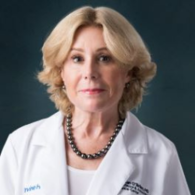
Susan O'Brien, MD is the associate director for Clinical Science at the Chao Family Comprehensive Cancer Center, the medical director of the Sue and Ralph Stern Center for Cancer Clinical Trials and Research, Professor of Medicine in the Department of Hematology and Oncology and the endowed chair of Cancer Clinical Science at University of California, Irvine. She earned her medical degree from and completed her residency in Internal Medicine at the University of Medicine and Dentistry of New Jersey (currently known as the Rutgers School of Biomedical and Health Sciences). She completed her fellowship at the University of Texas MD Anderson Cancer Center in Houston, TX where she spent over 30 years of her career advancing science in cancer, specifically in the field of leukemia.
Dr. O'Brien has been a principal investigator and driving force behind more than 40 funded clinical research protocols, 30 invited articles, numerous book chapters and abstracts, and has authored more than 800 articles in peer-reviewed journals. She is currently the hematology executive officer for SWOG (formerly known as the Southwest Oncology Group Executive Committee) and the hematology editor for the journal Cancer. She serves on the Medical Scientific Advisory Board and the Technology Acceleration Program Committee for the Leukemia & Lymphoma Society. Year after year, she is featured and ranked nationally at the top in her field by America's Top Doctors, Super Doctors, and America's Top Doctors for Cancer. Most notably she is the President-Elect of the Society of Hematologic Oncology (SOHO) and has been named the 2020 Giant of Cancer Care in Leukemia.
AFFICHER PLUS
Hagop M. Kantarjian, MD
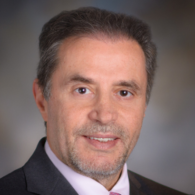
Hagop M. Kantarjian, MD
Professor and Chair, Department of Leukemia
Samsung Distinguished Leukemia Chair in Cancer Medicine
The University of Texas
MD Anderson Cancer Center
Houston, TX
Hagop M. Kantarjian, MD, is a professor and chair of the Department of Leukemia at The University of Texas MD Anderson Cancer Center in Houston, TX. Also, he is the Samsung Distinguished Leukemia Chair in Cancer Medicine and a Special Fellow on Healthcare Policies at the Rice University Baker Institute in Houston, TX and advocates for healthcare issues pertinent to patients with cancer and leukemia.
Dr. Kantarjian's research focuses on translational-clinical developmental therapeutics in leukemia. In the past 3 decades, he has made several contributions that improved the prognosis and survival in patients with chronic myeloid leukemia (tyrosine kinase inhibitors, eg, imatinib, dasatinib, nilotinib, bosutinib, ponatinib which improved the 10-year survival from 20% to 90%), in acute lymphocytic leukemia (H-CVAD regimen and its derivatives; antibodies including blinatumomab and inotuzumab), the discovery of decitabine for the treatment of myelodysplastic syndrome, and of clofarabine for the treatment of leukemias, among others. His research and collaborations were the basis for the FDA approvals of several drugs in leukemia.
Dr. Kantarjian has received several prestigious honours and awards, including the 37e Jeffrey A Gottlieb Memorial Award, the John Mendelsohn Lifetime Scientific Achievement Award, the ASCO Joseph H. Burchenal Memorial Award, the Charles A. LeMaistre, M.D. Outstanding Achievement Award in Cancer, and America's Top Doctors, Castle Connolly Medical award. He was also selected the top Castle Connolly National Physician of the Year Award for Lifetime Achievement. He has authored more than 2000 peer-reviewed publications.
AFFICHER PLUS






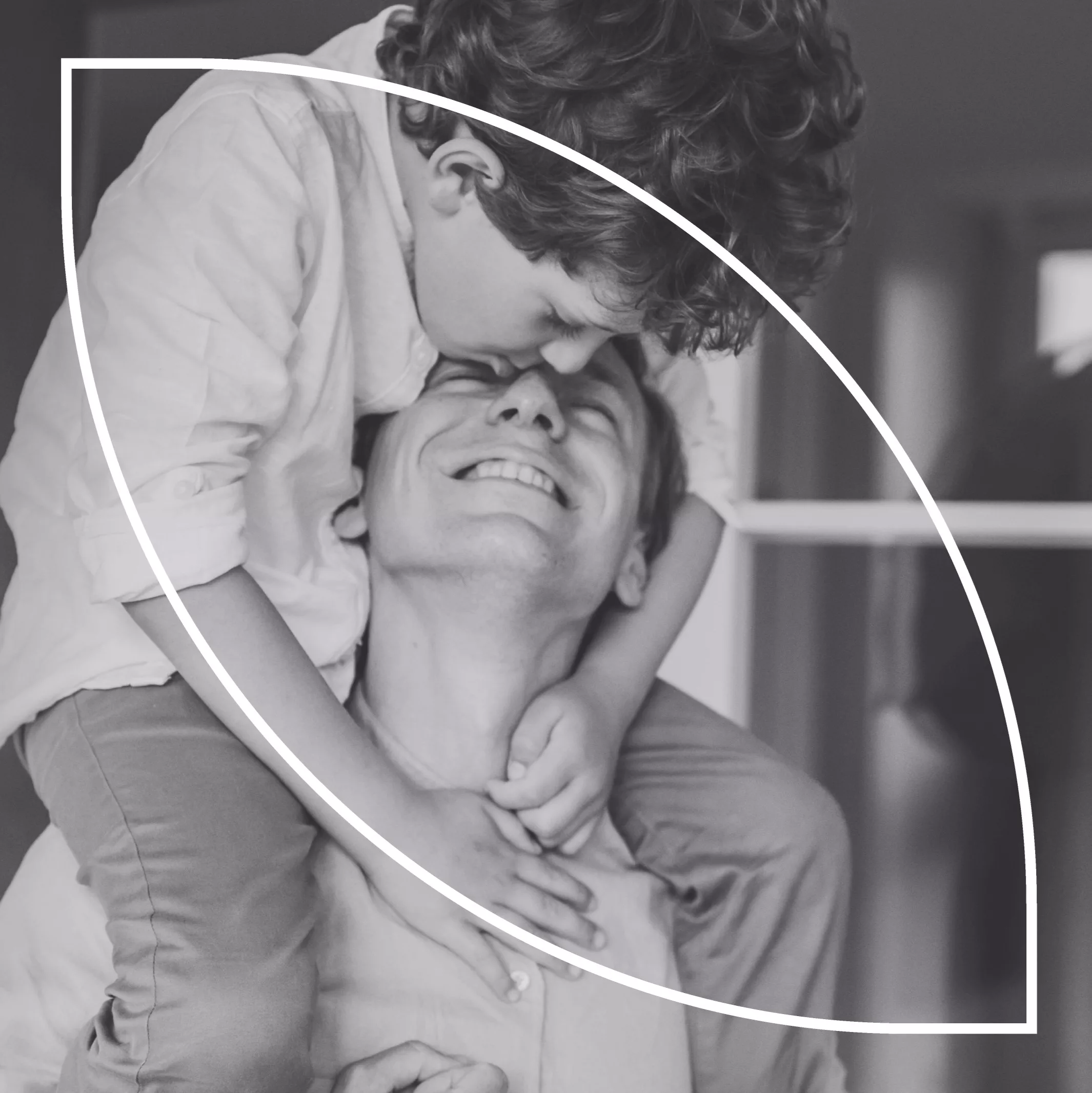 Les donateurs permettent de transformer les soins de santé à l’HGJ. Nous vous montrerons comment.
Les donateurs permettent de transformer les soins de santé à l’HGJ. Nous vous montrerons comment.